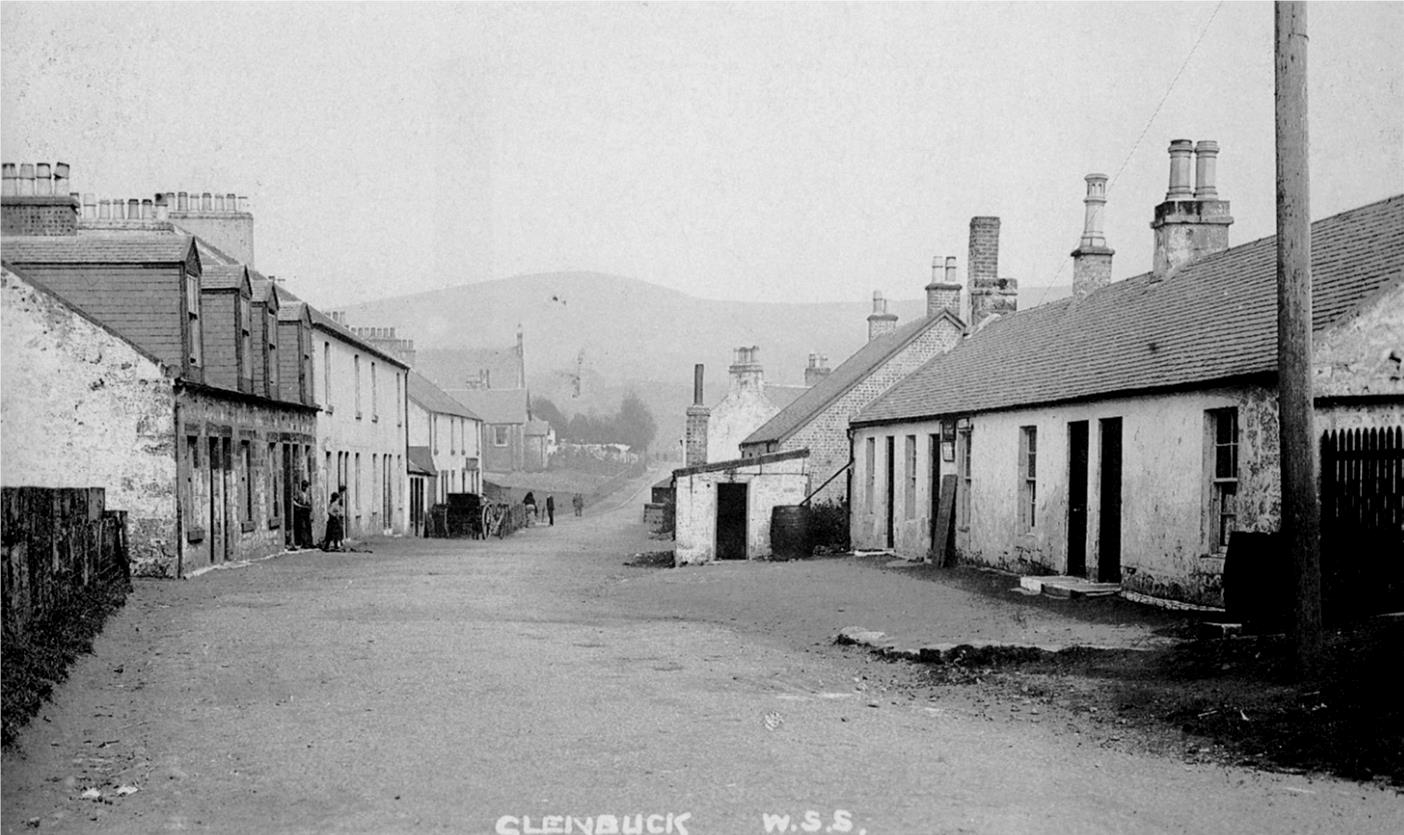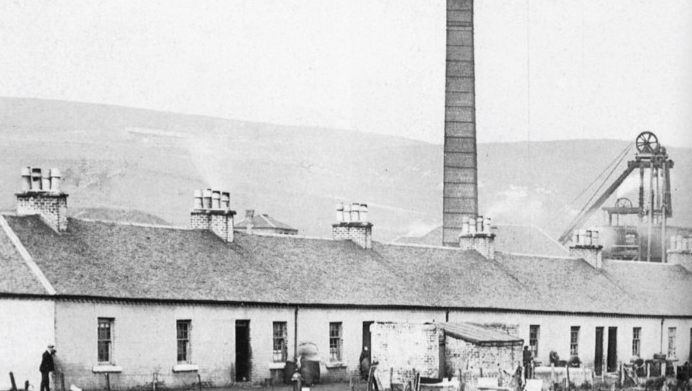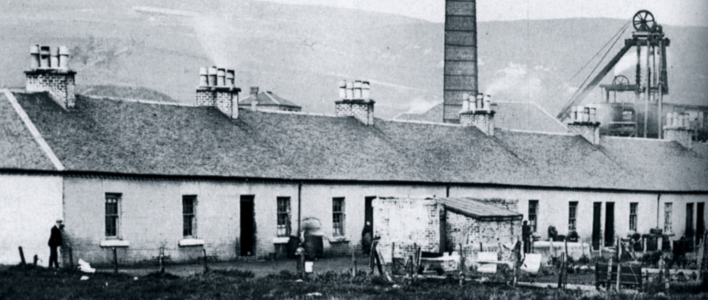Glenbuck

Glenbuck is a remote former mining village in Muirkirk parish located at the North-Eastern edge of Ayrshire, close to the border of Lanarkshire. It had an ironworks (1796) and several small coal mines in the vicinity in the nineteenth century. There were a number of ‘miners rows’ in the village to house inhabitants, with the largest, Grasshill Row (illustrated below), consisting of a single row of 33 two apartment dwellings. Its last local coal mine (Grasshill – whose winding gear can be seen in the background of the image below), which employed around 150 of Glenbuck’s residents of a total workforce of around 200, closed in 1933. Glenbuck school closed in 1951, the Co-op shop in 1953 and the village was totally depopulated by 1954, with the majority of the population moved to a council estate in Muirkirk.[1]

The village has gained notoriety as the birthplace of the legendary football manager Bill Shankly, who went on to gain fame as manager of Liverpool, 1959-1974. Shankly said of the village:
‘No disrespect to Glenbuck, but you would have been as far away from civilization in Outer Mongolia. The winters were cold and bitter, with four months of snow, and there was very little in the village so you had to go on long treks to get anything … We had our pride and our characters, who made their own world, the best of a bad lot, the best of isolation. We listened to the wireless or read the papers, so we knew about Jarrow and what was happening to other miners. But we were cut off from the big cities, so we talked to each other and about each other. We had fun, jokes, laughs…’[2]
He also reflected on his belief in a brand of socialism describing it as:
‘a way of living … I believe the only way to live and to be truly successful is by collective effort, with everyone working for each other, everyone helping each other, and everyone having a share of the rewards at the end of the day. That might be asking a lot, but it’s the way I see football and the way I see life.’[3]
There is a memorial to Shankly at Glenbuck (see below) to which Liverpool fans still regularly make a pilgrimage to. As Dane Love notes, the village was also famous locally for its success in quoiting, a popular pastime amongst the ironworkers and miners of Ayrshire.[4]

Image: Courtesy of WikiCommons
There is almost nothing that remains of the community on the site of the village now, except for the Shankly memorial. The remains of the football pitch where the ‘Glenbuck Cherrypickers’ played is still there – and there has been talk recently of reviving the team and playing again on the site. The area otherwise is dominated by a massive now disused open cast mine.
Sam Purdie was born and brought up in Glenbuck and you can listen to or read his wonderful memories from our project’s first oral interview on the ‘Voices from the villages’ section of this website. We are indebted to Sam for this and for providing us with an additional unpublished written account (2004) of his memoirs. In this he commented angrily of the social injustice of forced rehousing:
‘When the time came to uproot these folk and displace them for ever, they clung to their rows and despised the apparatchiks who decreed that the demography of the County would be much tidier on paper if they killed off small local communities, without a single thought in their pea brained heads of the societal consequences’.[5]
Our project is gathering the stories of the village, to find out about the children who played there, the women who kept the family fed and the men who laboured in the pits. If you or your family came from Glenbuck and you can help us uncover this history of life in the village, please get in touch.
Further Reading
- Dane Love, Ayrshire’s Lost Villages (Carn: Auchinleck, 2017)
- Shankly Memorial – https://www.east-ayrshire.gov.uk/news/article/shanklys-spirit-lives-on-in-glenbuck
Footnotes
- Dane Love, Ayrshire’s Lost Villages, pp. 155-169
- Cited at https://www.liverpoolecho.co.uk/sport/football/football-news/liverpool-most-important-date-history-16843384
- Cited at https://www.liverpoolecho.co.uk/sport/football/football-news/liverpool-most-important-date-history-16843384
- Dane Love, Ayrshire’s Lost Villages, p. 168
- Sam Purdie, Glenbuck (unpublished), 2004, p. 1
